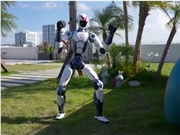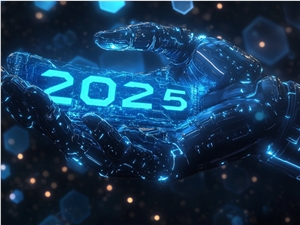Li Auto recently released an internal announcement, establishing two entirely new secondary departments: "Space Robot" and "Wearable Robot." This marks the company's official entry into the robotics sector, taking a significant step towards its "smart space" strategic layout.
According to "Late Auto," both newly established departments are under the leadership of Senior Vice President Han Yuhu’s product department. Shuai Yifan will take charge of the Space Robot department; he previously served as the head of Li Auto's product planning and senior product director. Zhang Wenbo will lead the Wearable Robot department; he was once the software product manager at Li Auto.
Notably, Shuai Yifan and Zhang Wenbo are early employees of Li Auto, with deep understanding of the company culture and technical accumulation. After this adjustment, they will report directly to Han Yuhu, highlighting Li Auto's high regard for these two new business directions.

Although Li Auto did not detail the specific functions of the new departments in the announcement, based on previous public statements from management, it is clear that its strategic intent is evident. The establishment of the Space Robot department is likely closely related to Li Auto's concept of "smart space."
Li Auto positions the passenger cabin of its intelligent electric vehicles as the "third space," following home and office as the third important living scenario. Through space robot technology, Li Auto aims to conduct deeper product function development and user experience optimization around the interior space, making cars truly become intelligent mobile living spaces.
The formation of the Wearable Robot department suggests that Li Auto is considering extending intelligent experiences to off-car scenarios. This layout may involve research and development of smart wearable devices to achieve a closed loop of intelligent experiences both inside and outside the car.
This organizational restructuring reflects Li Auto's transition from a mere automobile manufacturer to an intelligent travel ecosystem builder. By introducing robotics technology, the company seeks to build a more comprehensive intelligent life service system on top of intelligent electric vehicles.
This move by Li Auto aligns well with current industry trends. As intelligent technologies continue to mature, more automakers are shifting their focus toward building in-car intelligent ecosystems. Robotics technology, as an important application direction of artificial intelligence, has become a new battleground for major automakers.
The establishment of the new departments signifies another crucial step forward for Li Auto on its path toward intelligent transformation. By integrating robotics technology with automotive products, Li Auto could gain new differentiated advantages in intense market competition.
Currently, Li Auto has yet to announce specific product plans and timelines for the two new departments. However, the rapid adjustment of organizational structure indicates the company's proactive push for robotics business. In the future, with the gradual release of relevant products, Li Auto's "third space" strategy will迎来 more concrete implementation.









